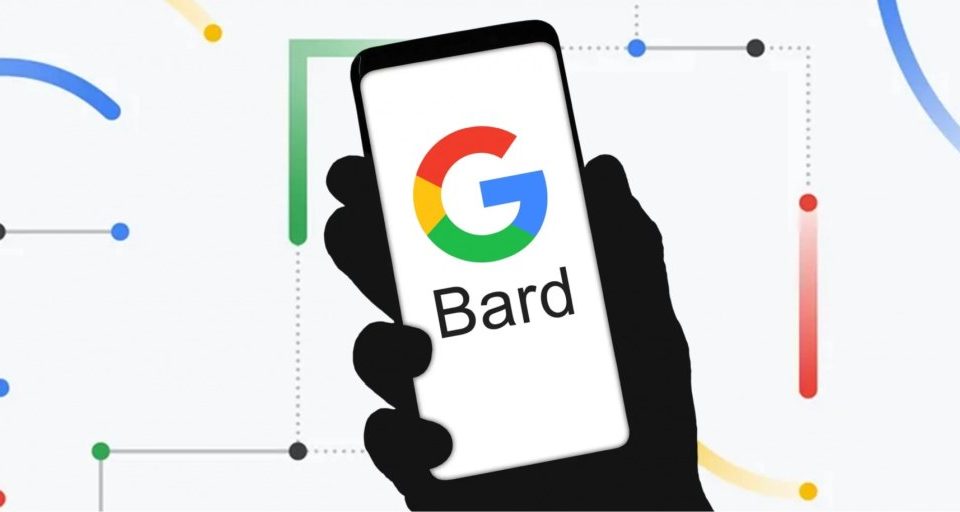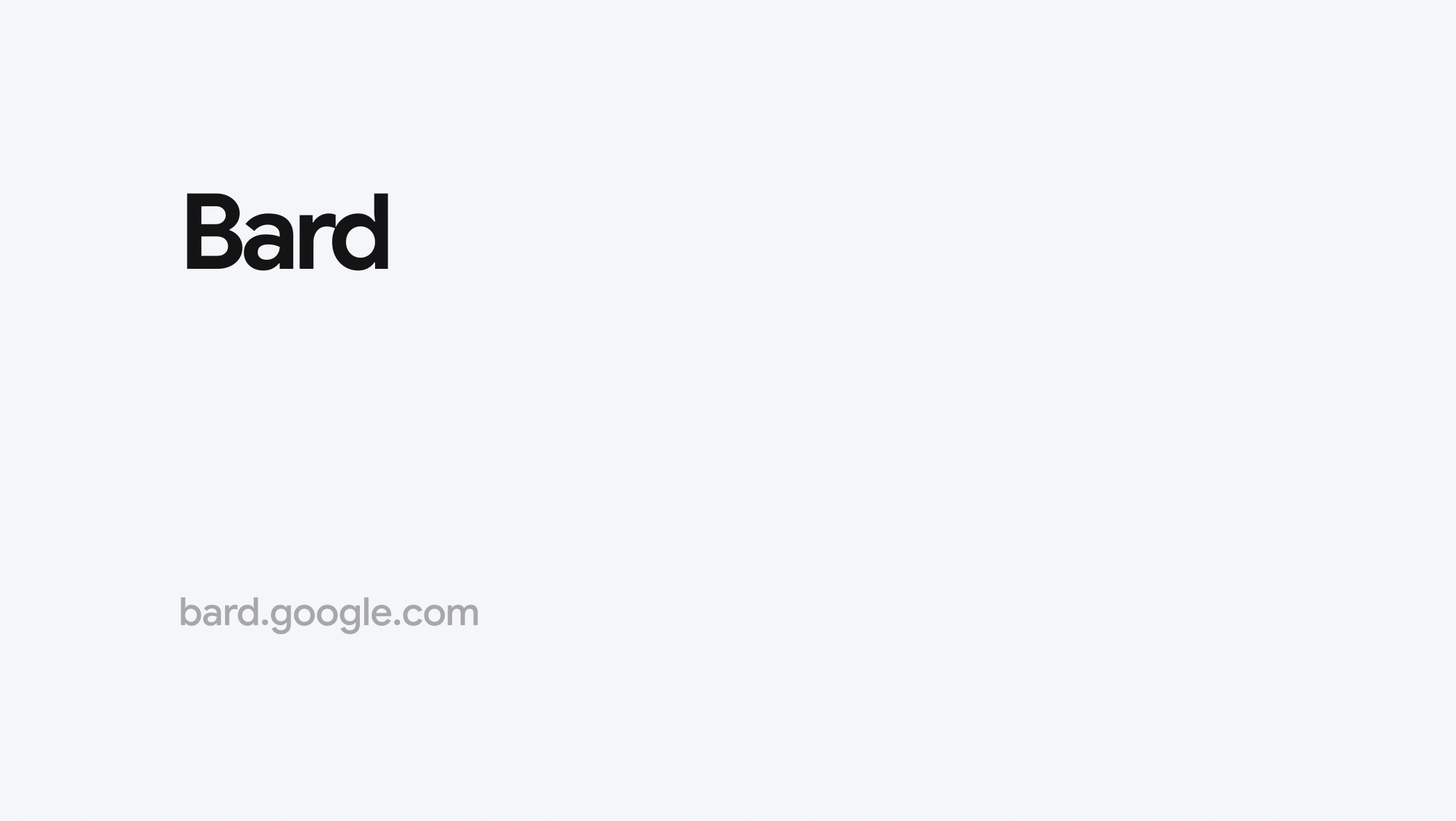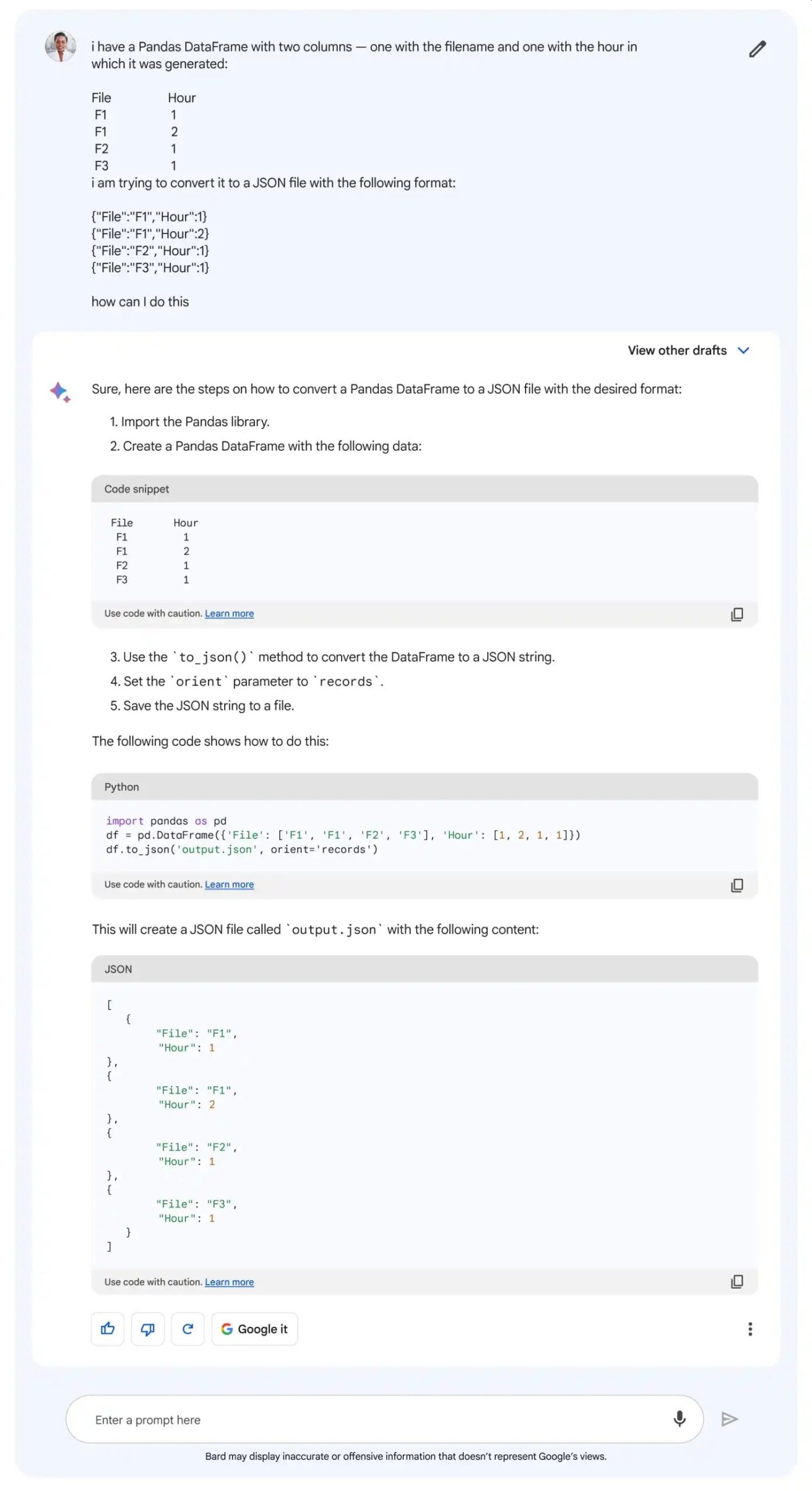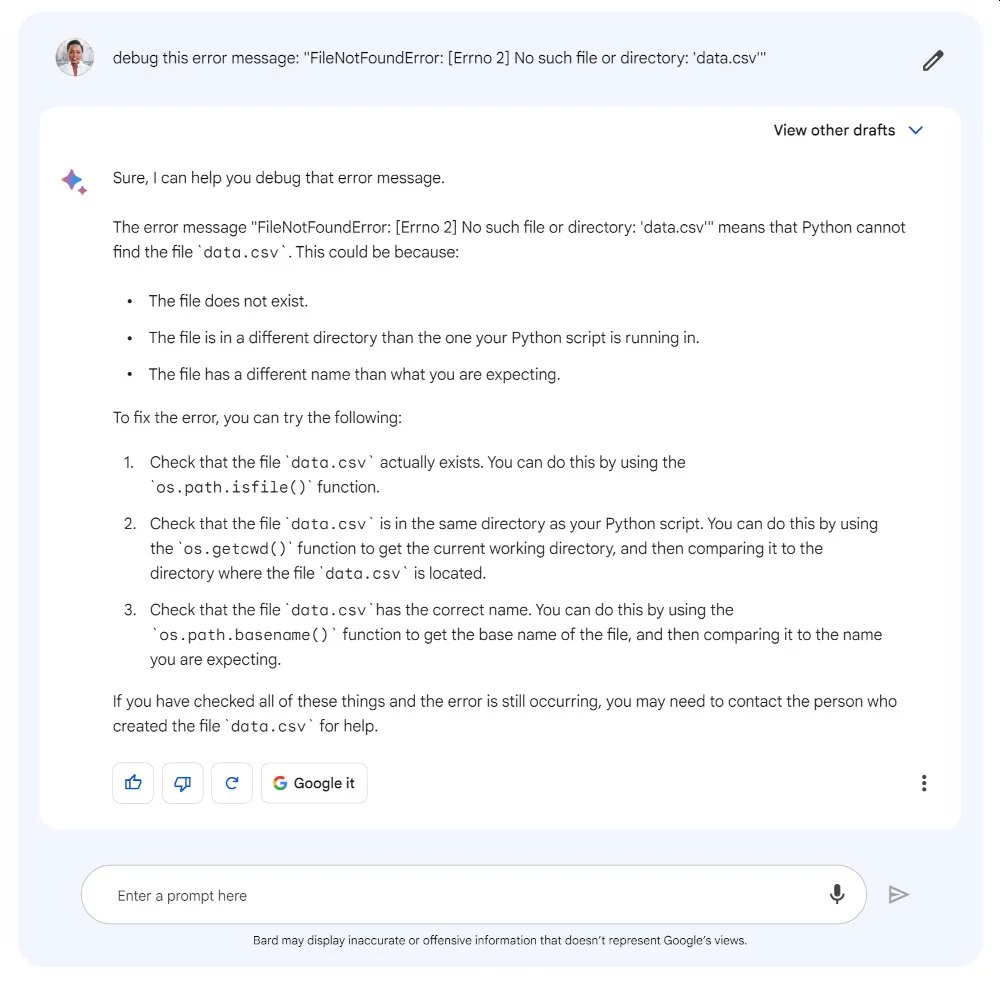Google Bard AI can now help you to write and debug software code

In February, Google unveiled its chatbot AI called Google Bard as part of its effort to challenge the Microsoft ChatGPT-powered Bing search engine. Although the launch got off on a rocky start, it appears that Bard is on the way to beating Microsoft at its game.
Bard is an experimental generative artificial intelligence (AI) chatbot, powered by LaMDA (Language Model for Dialogue Applications). the chatbot AI was built using Google large language models and drawing on information from the web. But just a month after the failed launch, Google updated Bard from LaMDA to PaLM (Pathways Language Model) for improved math and logic capabilities, with “coding coming soon.”
Unlike LaMDA, PaLM is based on a next-gen AI architecture called Pathways that can “train a single model to do thousands or millions of things” as opposed to the current individualized approach. As a result, Google says the new Bard will “better understand and respond to your prompts for multistep word and math problems.” But Google didn’t just
With the math and logic upgrade serving as a building block for the new Bard, Google announced Friday that it has updated Bard to help people write and debug software code, leveling the playing ground for everyone. The search giant says Bard can “help you by offering new ways to write code, create test cases, or update APIs.”
Google’s chatbot, Bard, now has the ability to assist users with programming tasks. Responding to high demand from users, the tech giant has equipped Bard with features that enable it to generate, debug, and explain code. Bard supports 20 programming languages, including C++, Java, JavaScript, and Python, and can now integrate with other Google products. Users can export their code to Colab, Google’s cloud-based notebook environment for Python, and Bard can also assist in writing functions for Sheets.
Announcing the launch, Google said:
“Since we launched Bard, our experiment that lets you collaborate with generative AI, coding has been one of the top requests we’ve received from our users. As a product lead in Google Research — and a passionate engineer who still programs every day — I’m excited that today we’re updating Bard to include that capability.”

“With new coding capabilities, we’re excited to apply generative AI to accelerate software development, inspire innovation, and help people solve complex engineering challenges,” Google said in a blog post.
With the upgrade, Google Bard has expanded its capabilities to include more than 20 programming languages, such as C++, Go, Java, JavaScript, Python, and TypeScript, among others. Python users can take advantage of a new feature that enables them to export their code directly to Google Colab without the need for copying and pasting. Additionally, Bard now integrates with Google Sheets to assist users in writing functions.

Bard’s new debugging feature is also capable of working with the code it has generated.
“If Bard gives you an error message or code that doesn’t do what you intended, just tell Bard “this code didn’t work, please fix it,” and Bard can help you debug.”

Finally, not only does Bard write and debug software code, but it can also enhance code performance and efficiency by responding to simple prompts like “Can you make this code faster?”. At present, Bard is available to a limited group of users who can interact with the chatbot and ask questions instead of using Google’s conventional search tool.

